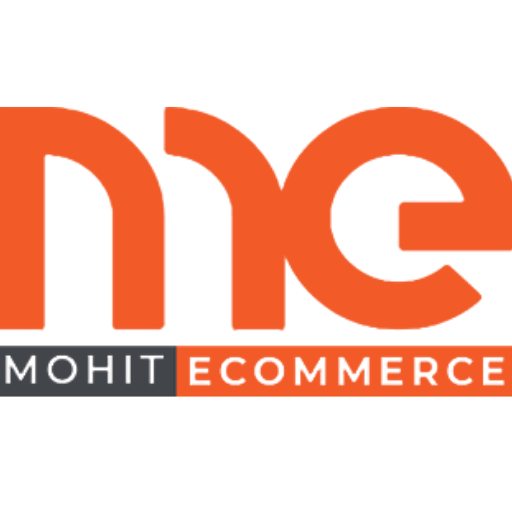To become an expert at ecommerce personalization, adjust your strategies and utilize state-of-the-art tools for capturing customer attention and driving profit. Customized shopping experiences boost engagement, loyalty, and revenue, setting you apart in the competitive online world. Embrace AI-powered techniques, deciphering customer behaviors and preferences strategically. Harnessing advanced software and smart recommendations is essential.
Dive deep into customer data, craft personalized emails, and offer targeted product suggestions. Work on reducing cart abandonment and enhancing brand loyalty through personalized interactions. Implementing these tactics, you’ll witness exponential growth and customer satisfaction, ultimately leading to ecommerce success.
Key Takeaways
- Understand customer preferences and behaviors for tailored experiences.
- Utilize advanced software and AI-powered tools for personalized recommendations.
- Implement robust analytics to analyze customer data for insights.
- Craft personalized email campaigns and dynamic website content.
- Continuously optimize strategies based on data-driven results.
Understanding Ecommerce Personalization

Ecommerce personalization is the key to accessing a tailored shopping experience for each individual customer. To excel in today’s competitive online marketplace, having a robust personalization strategy is essential. Leveraging ecommerce personalization tools can provide you with the personalization capabilities needed to stand out and drive customer engagement.
When crafting your personalization strategy, it’s important to utilize ecommerce personalization tools that can analyze customer data effectively. These tools can help you understand your customers’ preferences, browsing behavior, and purchase history. Through tapping into this data, you can create personalized product recommendations, targeted marketing campaigns, and tailored shopping experiences that resonate with each customer on a deeper level.
With the right personalization capabilities in place, you can boost customer loyalty, increase conversion rates, and drive revenue growth. Through harnessing the power of ecommerce personalization, you can create a seamless and personalized shopping journey that keeps customers coming back for more.
The Benefits of Ecommerce Personalization

Indulge in the world of tailored shopping experiences through the strategic implementation of ecommerce personalization. The benefits of ecommerce personalization are vast and impactful. Providing personalized product recommendations based on individual preferences and past behavior can enhance customer satisfaction to a great extent. Customers feel valued when they receive recommendations that align with their tastes, leading to a sense of being understood and catered to on a personal level.
Furthermore, ecommerce personalization can result in increased customer loyalty and retention. When customers feel like their needs are being met in a personalized way, they are more likely to return to your store for future purchases. This ultimately translates into higher customer lifetime value and a stronger relationship between your brand and the consumer.
In essence, the benefits of ecommerce personalization extend beyond just improving sales; they create an immersive shopping experience that resonates with customers on a personal basis, fostering long-term relationships and brand advocacy.
Curious about how ecommerce personalization can skyrocket your conversion rates? Implementing a personalized experience for your customers can lead to better conversions and increased customer loyalty. Through tailoring your website content, product recommendations, and marketing messages to suit individual preferences, you create a more engaging and relevant shopping experience. This level of personalization not only improves conversions but also fosters a sense of connection with your brand, driving customer loyalty in the long run.
| Benefits of Personalized Experience | Impact on Conversions |
|---|---|
| Customized product recommendations | Higher conversion rates |
| Tailored marketing messages | Increased average order value |
| Dynamic website content based on preferences | Reduced cart abandonment rates |
| Personalized email campaigns | Improved customer retention |
To achieve successful personalization that boosts conversions, it’s essential to analyze customer data, track user behavior, and continuously optimize your strategies based on insights gathered. Embracing ecommerce personalization can revolutionize your business by creating a unique and tailored shopping journey for each customer.
1. Increased customer loyalty
Ready to solidify a devoted customer base that keeps coming back for more? Implementing personalized recommendations and creating a tailored shopping experience can enhance customer loyalty and turn first-time buyers into loyal customers.
Personalized recommendations based on customers’ browsing and purchase history can significantly boost the likelihood of repeat purchases. Providing a personalized shopping experience, like customized product suggestions or exclusive offers based on individual preferences, makes customers feel valued and understood, fostering a sense of loyalty towards your brand.
Data-driven strategies play a vital role in building customer loyalty. Analyzing customer data allows you to understand their behavior, preferences, and purchase patterns, enabling you to offer targeted promotions and recommendations.
Utilizing this data effectively, you can create more personalized interactions that resonate with your customers, ultimately leading to increased loyalty and retention. Remember, loyal customers not only make repeat purchases but also act as brand advocates, driving referrals and further expanding your customer base.
2. Enhanced customer experience
Enhancing the customer experience is a strategic imperative for ecommerce success. Tailoring user experiences through personalized content and dynamic content is the key to creating memorable interactions. Understanding your customers’ preferences, behaviors, and purchase history, you can curate a seamless journey that resonates with them on a personal level.
Personalized content allows you to engage users showing them products or services that cater to their specific needs and interests. Dynamic content, on the other hand, enables real-time customization based on user behavior, ensuring a relevant and engaging experience throughout their visit.
Investing in enhancing customer experiences not only fosters loyalty but also drives conversions and boosts revenue. Studies show that businesses that prioritize user experience outperform their competitors significantly. Leveraging data-driven insights to deliver tailored experiences, you can create a competitive edge that sets your ecommerce business apart in the crowded online marketplace.
3. Competitive advantage
To establish a strong foothold in the fiercely competitive ecommerce landscape, it is imperative to leverage every available advantage to set your business apart. One of the most potent tools at your disposal is a robust ecommerce personalization strategy.
Implementing AI-powered personalization techniques, you can gain a significant competitive advantage over your rivals. Personalization allows you to tailor the online shopping experience to the preferences and behaviors of individual customers, leading to higher engagement, increased conversions, and ultimately, improved customer loyalty.
The benefits of personalization are clear – it enhances customer satisfaction, boosts repeat business, and drives revenue growth. In today’s data-driven world, customers expect personalized experiences that cater to their specific needs and desires.
Leveraging AI-powered tools to analyze customer data and deliver tailored recommendations, you can not only meet but exceed these expectations, cementing your position as a leader in the ecommerce space. Embrace the power of personalization to stay ahead of the competition and drive your business to new heights.
4. A better understanding of your customers
Understanding your customers is the keystone of a successful ecommerce strategy. Through delving into user behavior and identifying customer segments, you can tailor your approach to provide personalized and relevant content. The key lies in analyzing data to uncover insights that will guide your decisions and enhance the overall shopping experience.
Customer segmentation allows you to group individuals based on similar characteristics or behaviors. This segmentation enables you to create targeted marketing campaigns and personalized recommendations. By understanding the preferences and needs of different customer segments, you can deliver a more tailored and compelling online shopping journey.
User behavior analysis is another pivotal aspect of comprehending your customers. Through tracking how users interact with your website, you can gain valuable insights into their preferences, browsing habits, and purchase patterns. This data can inform your personalization strategy, helping you to deliver content that resonates with each customer on a deeper level.
How to Start With Ecommerce Personalization?
Now, it’s time to take action and kickstart your journey into ecommerce personalization. To commence, acquaint yourself with personalization tactics and the importance of utilizing an ecommerce personalization platform. These tools will be your key to accessing real-time customer insights and customizing their shopping experience to drive conversions.
One effective way to start is through analyzing your existing customer data to identify patterns and preferences. Understanding your customers on a deeper level, you can implement targeted strategies that resonate with them. For example, you can suggest products based on their browsing history or send personalized offers through email marketing.
Look towards successful ecommerce personalization examples for inspiration. Companies like Amazon and Netflix have perfected the art of personalization by offering tailored product recommendations and content suggestions based on user behavior. Implementing similar strategies can notably enhance your customers’ shopping experience and boost your bottom line. So, plunge into, explore the tools available, and begin crafting personalized experiences that will set your ecommerce business apart.
Key Strategies for Effective Ecommerce Personalization

Sometimes, the key to accessing immense success in ecommerce lies in the power of personalization. To effectively personalize the shopping experience for your customers, you need to understand their behaviors.
Utilize this valuable information to tailor your approach. Start sending personalized emails that cater to their preferences and browsing history. Using this method, you can create a connection that resonates with them on a personal level. Moreover, leverage user-generated content to showcase authentic experiences and build trust with potential buyers.
Another vital tactic for effective ecommerce personalization is providing relevant product recommendations. Analyze data on past purchases and browsing patterns to suggest items that align with each customer’s interests.
This not only enhances the shopping experience but also increases the likelihood of conversions. Remember, the more personalized the experience, the more engaged and loyal your customers are likely to become. Implementing these key strategies, you can elevate your ecommerce personalization game and drive significant results for your business.
Top Personalization Tools for Ecommerce Businesses

To take your ecommerce personalization efforts to the next level, it’s imperative to equip yourself with the right tools. Investing in advanced ecommerce personalization software can greatly enhance your customer experience. These tools offer features like smart recommendations based on browsing history and purchase behavior, helping you tailor product suggestions to individual preferences.
One key area where personalization tools excel is in combating cart abandonment. Utilizing these tools, you can implement strategies such as automated email reminders for abandoned carts, personalized discount offers, or even targeted product recommendations to entice customers back to complete their purchase.
When selecting personalization tools for your ecommerce business, look for platforms that offer robust analytics capabilities. These insights will allow you to track the effectiveness of your personalization efforts, optimize your strategies, and ultimately drive conversions. Remember, the right tools can make all the difference in delivering a personalized shopping experience that keeps customers coming back for more.
Ecommerce Personalization Techniques You Should Try
Looking to enhance your ecommerce game and boost customer engagement? To improve your conversion rates and stand out in the crowded ecommerce space, consider implementing these powerful ecommerce personalization tactics on your selected ecommerce platform:
- Dynamic Product Recommendations: Increase customer engagement through offering personalized product suggestions based on their browsing history and purchase behavior. Showing customers items they are likely to be interested in can drive conversions and increase sales.
- Personalized Email Campaigns: Take your email marketing to the next level by sending customized messages tailored to each customer’s preferences and behaviors. By delivering relevant content directly to their inbox, you can foster a deeper connection with your audience and enhance conversion rates.
- Customized User Experience: Tailor the user experience on your ecommerce platform by personalizing product suggestions, messaging, and offers based on individual customer data. Creating a personalized shopping journey for each customer can have a significant impact on engagement and drive repeat business.
5 Reasons Ecommerce Personalization is Crucial Today

You need to understand that ecommerce personalization is not just a trend; it’s a strategic necessity in today’s competitive market. Tailoring the shopping experience to individual preferences, you can increase user engagement, leading to higher sales and revenue. In addition, personalized experiences foster customer loyalty, encouraging repeat purchases and building unique connections that set your brand apart.
1. Improves user engagement
Personalization in ecommerce is no longer just a nice-to-have feature – it is now an essential element for driving user engagement and enhancing customer experiences. Tailoring the online shopping experience to individual preferences and behaviors, you can create a deeper connection with your customers. Here’s why personalized user engagement is key:
- Emotional Connection: When customers feel like you understand their needs and preferences, they are more likely to engage with your brand on a personal level, fostering loyalty and trust.
- Increased Interactions: Providing personalized recommendations and content, you can keep users engaged for longer periods, leading to more interactions and a higher likelihood of conversion.
- Enhanced Customer Satisfaction: Personalization shows that you value each customer’s unique journey, leading to increased satisfaction and a higher likelihood of repeat purchases.
Harnessing the power of user engagement through ecommerce personalization is not just about driving sales; it’s about building lasting relationships with your customers.
2. Boosts sales and revenue
With the ever-evolving landscape of ecommerce, the strategic implementation of personalized experiences has emerged as an essential factor in driving sales and revenue. Tailoring each customer’s journey through AI-powered smart recommendations and creating a customer loyalty platform, you can witness a significant boost in conversion rates. Personalized journeys not only enhance the shopping experience but also lead to increased sales and revenue for your ecommerce business.
Here is a table illustrating how ecommerce personalization can boost sales and revenue:
| Benefits of Ecommerce Personalization | ||
|---|---|---|
| Boost in Conversion Rates | Customer loyalty platform | Personalized Journeys |
| Higher likelihood of purchase | Engages and retains customers effectively | Tailored experiences lead to increased sales |
Embracing these strategies not only drives revenue but also fosters a loyal customer base, setting your ecommerce business up for long-term success.
3. Enhances customer retention
Enhancing customer retention stands as an integral component in the domain of ecommerce personalization, driving long-term success and sustainable growth for businesses in today’s competitive landscape. Focusing on personalized experiences and offering relevant products, you can create a loyal customer base that keeps coming back for more. Here’s why enhancing customer retention through ecommerce personalization is essential:
- Builds Trust: Tailoring your offerings to each customer’s preferences shows that you understand their needs, fostering trust and loyalty.
- Increases Lifetime Value: Retained customers tend to spend more over time, leading to increased lifetime value and higher overall revenue for your business.
- Reduces Churn: Personalization helps in keeping customers engaged and satisfied, reducing the likelihood of them switching to competitors.
Incorporating ecommerce personalization to enhance customer retention not only benefits your bottom line but also creates a community of satisfied customers who advocate for your brand.
4. Encourages repeat purchases
Building on the foundation of enhancing customer retention through tailored experiences and relevant products, the encouragement of repeat purchases emerges as a pivotal advantage of ecommerce personalization in today’s dynamic market.
Ecommerce companies that prioritize personalization strategies witness a significant boost in customer lifetime value through fostering loyalty and driving repeat purchases. Analyzing customer data and behavior enables businesses to create personalized recommendations, targeted promotions, and customized cart abandonment emails to entice customers back to complete their purchases.
This strategic approach not only increases conversion rates but also strengthens the relationship between the brand and the consumer, ultimately leading to higher customer satisfaction and loyalty. Through personalized experiences, ecommerce companies can create a seamless shopping journey that resonates with individual preferences, encouraging customers to return for future purchases.
Leveraging data-driven personalization techniques, businesses can establish a strong foundation for continuous growth and success in the competitive online market.
5. Creates unique customer experiences
To truly stand out in today’s competitive ecommerce landscape, creating unique customer experiences through personalization is not just a luxury but a necessity for long-term success. Tailoring your ecommerce experience to each individual in real time, you can transform casual browsers into loyal customers who keep coming back for more. Here are three compelling reasons why focusing on personalization efforts can revolutionize your customer base and elevate your ecommerce experience:
- Emotional Connection: Personalization allows you to connect with your customers on a deeper level, showing that you understand their preferences and needs. This emotional bond fosters trust and loyalty, leading to repeat purchases and positive word-of-mouth.
- Enhanced Engagement: Delivering customized recommendations and content, you can keep customers engaged and interested in your offerings. This heightened engagement boosts conversion rates and maximizes the lifetime value of each customer.
- Differentiation: In a crowded online marketplace, offering unique and tailored experiences sets you apart from competitors. Standing out through personalization not only attracts new customers but also strengthens relationships with existing ones, fostering long-term success.
10 Advantages of Personalizing Customer Experiences in Ecommerce
Personalizing customer experiences in ecommerce brings a host of advantages. Tailoring your offerings to individual preferences can greatly enhance customer satisfaction levels. This, in turn, leads to higher average order values and more successful marketing campaigns, creating a win-win situation for both you and your customers.
1. Increased customer satisfaction
With the rise of ecommerce, businesses are constantly seeking ways to improve customer satisfaction. Implementing personalized shopping experiences through ecommerce personalization, you can greatly impact customer satisfaction levels. Here are three compelling reasons why increased customer satisfaction is essential for your ecommerce success:
- Loyalty Boost: When customers feel understood and valued through personalized experiences, they are more likely to develop loyalty to your brand. This loyalty translates into repeat purchases and positive word-of-mouth recommendations.
- Higher Conversion Rates: Customizing the shopping journey to individual preferences leads to higher conversion rates. Customers are more inclined to complete their purchases when they feel like the shopping experience caters to their needs and desires.
- Positive Reviews and Feedback: Satisfied customers are more likely to leave positive reviews and provide valuable feedback. This not only attracts new customers but also helps in improving your products and services based on customer insights.
Enhanced customer experience through ecommerce personalization is the key to accessing increased customer satisfaction, ultimately driving business growth and success.
2. Higher average order values
Tap into the power of ecommerce personalization to drive higher average order values and access new levels of success for your online business. Utilizing customer data engines to tailor relevant experiences, you can notably impact your bottom line. Personalizing the shopping journey based on individual preferences and behaviors increases the likelihood of customers adding more items to their carts and making larger purchases.
Studies have shown that personalized product recommendations alone can enhance average order values up to 50%. When customers feel like you comprehend their needs and showcase products or services that resonate with them, they are more inclined to spend more. This targeted approach not only enhances the shopping experience but also fosters customer loyalty and repeat purchases.
Investing in ecommerce personalization is not just a trend; it’s a strategic move towards driving higher revenue streams. Analyzing customer data, understanding their preferences, and delivering tailored experiences, you can uncover the potential for increased average order values and sustainable growth in your online business.
3. Better targeting of marketing campaigns
Targeting marketing campaigns effectively is a foundation of successful ecommerce strategies. When it comes to ecommerce personalization, honing in on the right audience with tailored marketing messages can greatly impact your business. Here’s why better targeting of marketing campaigns is essential:
- Connect Emotionally: Through personalizing your marketing campaigns, you can speak directly to individual customers’ needs and desires, creating a stronger emotional bond that drives engagement and loyalty.
- Boost Conversion Rates: Tailoring your messages based on customer preferences and behaviors increases the likelihood of conversion. When customers feel like you understand them, they are more inclined to respond positively to your marketing efforts.
- Maximize ROI: Utilizing personalization tactics in your marketing campaigns ensures that you are allocating your resources where they will have the greatest impact. This data-driven approach leads to higher returns on investment and a more efficient use of your marketing budget.
4. More effective cross-selling and upselling
To truly improve your ecommerce game and drive significant revenue growth, mastering the art of more effective cross-selling and upselling is essential. Leveraging ecommerce personalization strategies, you can strategically recommend complementary products to customers based on their browsing and purchase history. When a customer adds an item to their shopping cart, this presents a prime opportunity to suggest related products that enhance their overall shopping experience.
Data-driven insights play a vital role in identifying the most relevant cross-sells and upsells for each customer. Analyzing past purchase behaviors and preferences, you can tailor your recommendations to align with individual interests, increasing the likelihood of conversion. Offering personalized suggestions not only boosts average order value but also enhances customer satisfaction by guiding them towards products that align with their needs and preferences.
5. Stronger customer relationships
Building stronger customer relationships in ecommerce is not just a trend; it’s a strategic necessity for sustained success. Through personalizing shopping experiences and leveraging customer feedback, you can forge deeper connections that drive loyalty and advocacy. Here’s why focusing on customer relationships is essential:
- Emotional Connection: Tailoring experiences to individual preferences shows customers that you understand and care about them, nurturing an emotional bond that goes beyond transactions.
- Brand Loyalty: When customers feel valued and appreciated through personalized interactions, they are more likely to remain loyal to your brand, increasing repeat purchases and lifetime value.
- Word-of-Mouth Marketing: Satisfied customers who feel a strong connection to your brand are inclined to share their positive experiences with others, acting as brand advocates and attracting new business through word-of-mouth.
6. In-depth customer insights
Enhancing your ecommerce strategy with detailed customer insights can revolutionize the way you personalize customer experiences. Exploring customer purchase decisions, you can create 360-degree customer profiles that provide an all-encompassing view of each individual. These profiles enable you to understand customer behaviors, preferences, and needs on a deeper level.
With insights gathered from various touchpoints, you can map out cross-channel customer journeys that cater to customers seamlessly across different platforms. Understanding the customer journey allows you to anticipate their needs and deliver personalized experiences at every interaction point.
Moreover, analyzing the cart abandonment percentage can offer valuable insights into where customers might be facing obstacles in the purchasing process. By addressing these pain points, you can optimize the shopping experience and increase conversion rates.
7. Reduced cart abandonment rates
Through harnessing the power of personalized customer experiences in ecommerce, you can effectively tackle one of the most significant challenges faced online retailers – cart abandonment rates. Implementing ecommerce personalization strategies, you can create a seamless online shopping experience that keeps customers engaged and drives conversions. Here’s how personalized customer experiences can help you reduce cart abandonment rates:
- Increased Relevance: Tailoring product recommendations and content based on individual preferences through ecommerce personalization makes customers feel understood and valued, leading to a higher likelihood of completing purchases.
- Timely Email Campaigns: Utilizing personalized email campaigns triggered through customer behavior can remind shoppers of items left in their carts, enticing them to return and finalize their purchases.
- Streamlined Checkout Process: Simplifying the checkout process through pre-filling information or offering guest checkouts based on previous interactions enhances the overall shopping experience, reducing the chances of abandonment.
8. Improved brand loyalty
Fostering enhanced brand loyalty through customized customer experiences in ecommerce is a strategic approach that drives long-term success. Through utilizing ecommerce personalization tools and a robust customer data engine, you can design tailored experiences that resonate with your audience, leading to stronger connections with your brand.
When customers feel understood and valued through personalized experiences, they are more likely to return to your online store, make repeat purchases, and become brand advocates.
Research shows that personalized experiences can significantly influence brand loyalty, with 80% of consumers more inclined to do business with a company that offers personalized experiences. Through analyzing customer data and behavior, you can anticipate their needs, recommend relevant products, and create a seamless shopping journey.
This level of personalization not only enhances customer satisfaction but also builds trust and loyalty towards your brand, distinguishing you from competitors and propelling long-term success in the ecommerce landscape.
9. Adaptable marketing strategies
Crafting flexible marketing strategies is a key advantage of personalizing customer experiences in ecommerce. Tailoring your marketing approach to each individual customer can enhance their shopping journey and improve your business performance significantly. Here’s why flexible marketing strategies are essential in the world of ecommerce personalization:
- Emotional Connection: Flexible marketing strategies enable you to connect with customers on a deeper level, resonating with their needs and preferences in a way that generic approaches cannot achieve.
- Enhanced Customer Engagement: Through the use of artificial intelligence and data-driven insights, you can create personalized campaigns that captivate your audience, leading to higher engagement rates and increased conversions.
- Competitive Edge: By staying agile and adjusting your marketing strategies based on individual customer behaviors and feedback, you can outperform competitors and establish yourself as a leader in the field of ecommerce personalization.
10. Long-term customer engagement
Engaging with customers on a long-term basis is a pivotal aspect of excelling in ecommerce personalization. Nurturing lasting relationships with users, you can create a loyal customer base that drives sustained revenue growth. Providing personalized recommendations based on their preferences and past interactions keeps customers engaged and coming back for more.
Implementing effective long-term engagement strategies requires a deep understanding of your users and their behavior. Analyzing data on user preferences, purchase history, and browsing patterns, you can tailor their experience to meet their needs and expectations. This data-driven approach allows you to anticipate their needs and provide relevant recommendations, enhancing their overall shopping experience.
| Advantages of Long-term Customer Engagement |
|---|
| Builds Customer Loyalty |
| Increases Customer Lifetime Value |
| Boosts Repeat Purchases |
| Drives Word-of-Mouth Referrals |
| Enhances Overall Customer Experience |
Ecommerce Personalization Best Practices
When it comes to maximizing the impact of your ecommerce platform, personalization is a key strategy that can set you apart from the competition. To excel in ecommerce personalization, consider the following best practices:
- Utilize Customer Data: Dive deep into your customer data to understand preferences, behaviors, and purchase history. This information is gold when it comes to tailoring personalized experiences that resonate with your audience emotionally.
- Harness Marketing Automation Platforms: Implementing a robust marketing automation platform can streamline personalized communications, automate tasks, and guarantee consistent messaging across all touchpoints. This not only saves time but also allows you to deliver timely and relevant content to your customers.
- Test and Optimize Continuously: Embrace a culture of experimentation. Test different personalization strategies, analyze the results, and optimize based on data-driven insights. Continuous testing and refinement are essential to staying ahead in the competitive world of ecommerce.
How MohitEcommerce Can Help in Ecommerce Personalization?
To truly enhance your ecommerce personalization efforts, shift your focus towards MohitEcommerce. As an expert in ecommerce personalization solutions, MohitEcommerce offers cutting-edge technology to improve your customer’s shopping experience. Utilizing MohitEcommerce’s platform, you can surpass traditional personalization techniques and immerse yourself in advanced content personalization strategies.
MohitEcommerce provides a strong set of tools that analyze customer behavior, preferences, and purchase history to deliver tailored recommendations and personalized content in real-time. This degree of customization guarantees that each customer interaction is significant and drives increased engagement and conversions.
With MohitEcommerce, you can segment your audience effectively, generate dynamic product recommendations, and optimize your website for a personalized shopping journey. Their data-driven approach enables you to stay ahead of the competition and provide a genuinely personalized experience that resonates with your customers.
Integrating MohitEcommerce into your ecommerce strategy will not only increase sales but also cultivate long-term customer loyalty through unmatched personalization.
Ecommerce Personalization Examples to Inspire Your Strategy
Looking to enhance your ecommerce personalization strategy for best customer engagement and conversions? Here are some inspiring examples to ignite your creativity and drive results:
- Tailored Product Recommendations: Implement algorithms that analyze customer behavior and preferences to offer personalized product recommendations. Suggesting items based on past purchases or browsing history can increase the likelihood of conversion and enhance the shopping experience.
- Dynamic Content Personalization: Use data insights to create dynamic website content that resonates with individual customers. Personalizing banners, product images, and messaging based on demographics, location, or past interactions can capture attention and foster a sense of connection.
- Personalized Email Campaigns: Leverage customer data to send targeted emails with personalized recommendations, promotions, or content. Crafting emails that speak directly to the recipient’s interests and purchase history can drive engagement and encourage repeat business.
How to Leverage Customer Data for Personalization?
Harnessing customer data for personalization is the foundation of building a successful ecommerce strategy. Leveraging the extensive pool of customer data available, you can craft tailored experiences that resonate with each unique shopper.
Utilizing marketing automation tools plays a key role in efficiently managing and analyzing customer data to drive personalized recommendations and targeted campaigns. Through effective cross-channel marketing, you can ensure a seamless experience for customers across various touchpoints, enhancing engagement and loyalty.
To effectively leverage customer data, begin with collecting and organizing data from diverse sources such as website interactions, purchase history, and demographic information.
Analyzing this data will offer valuable insights into customer behavior and preferences, enabling you to create personalized product recommendations, customized offers, and targeted marketing messages. Continually monitor and refine your personalization strategies based on data-driven insights to optimize results and enhance the overall customer experience. By tapping into the power of customer data, you can elevate your ecommerce personalization efforts to drive growth and customer satisfaction.
Personalization vs. Privacy: Finding the Right Balance
Traversing the intricate landscape of ecommerce personalization requires a delicate balance between providing tailored experiences and respecting customer privacy. Achieving this equilibrium is vital for building trust and fostering long-lasting relationships with your audience. Here’s how you can navigate the fine line between personalization and privacy in ecommerce:
- Empathy: Understand that personalization should enhance the customer experience, not invade privacy. Put yourself in your customers’ shoes and tailor your strategies with their best interests in mind.
- Transparency: Be transparent about the data you collect and how you use it to personalize their experience. Honesty builds trust and reassures customers that their privacy is valued.
- Opt-in Approach: Give customers control over their personalization settings. Allow them to choose the level of personalization they are comfortable with, empowering them to set their boundaries.
Creating Personalized Marketing Campaigns
To excel in personalized marketing campaigns, consider the following strategies:
| Campaign Type | Description |
|---|---|
| Email Marketing | Send personalized emails based on customer behavior. |
| Social Media Ads | Tailor ads to match customer interests and behavior. |
| Product Recommendations | Offer personalized product suggestions on your website. |
Crafting compelling campaigns requires a deep understanding of your target audience. Utilize customer data to segment your audience effectively and deliver hyper-personalized marketing messages. Aligning your marketing strategies with customer preferences, you can drive engagement and conversions in the competitive landscape of ecommerce.
The Role of AI in Ecommerce Personalization
In today’s dynamic landscape of ecommerce, artificial intelligence (AI) plays a pivotal role in revolutionizing how businesses personalize their customer experiences. AI empowers ecommerce personalization through analyzing vast amounts of customer data in real-time, enabling businesses to offer tailored and relevant experiences. Here’s why AI is essential for effective ecommerce personalization:
- Hyper-Personalization: AI algorithms dive deep into customer data, allowing for hyper-personalized experiences that resonate with individual preferences and behaviors, fostering stronger connections.
- Predictive Analytics: Through leveraging AI-driven predictive analytics, businesses can anticipate customer needs and desires, proactively presenting products or services that align with their interests, increasing conversion rates.
- Enhanced Customer Engagement: AI enables businesses to engage customers at the right moment with the right message, fostering meaningful interactions that drive loyalty and repeat purchases.
Embracing AI in ecommerce personalization is not just a trend; it’s a strategic imperative to deliver exceptional personalized experiences that keep customers coming back for more.
Understanding Your Audience: The Key to Effective Personalization
Having explored the significant impact of AI in ecommerce personalization, the next essential aspect to understand is your audience. Effective personalization hinges on a deep comprehension of your customers. Through analyzing customer data, you can uncover valuable insights that will inform your ecommerce personalization strategies. Understanding your audience goes beyond basic demographics; it involves delving into their preferences, behaviors, and purchasing patterns.
To achieve a high level of personalization, you must segment your audience based on their unique characteristics. Tailoring your marketing efforts to specific segments allows you to create more relevant and engaging experiences for your customers. This targeted approach increases customer satisfaction and loyalty, driving conversions and revenue for your ecommerce business.
Measuring the Success of Ecommerce Personalization Efforts
At the heart of successful ecommerce personalization lies the ability to measure its impact accurately. To truly understand the effectiveness of your ecommerce personalization strategies, you need to deeply examine the data and metrics. Here are three key ways to measure the success of your efforts:
- Customer Data Analysis: Explore the customer data collected through your ecommerce platform to identify patterns, preferences, and behaviors. Through understanding your customers on a detailed level, you can tailor your personalization strategies effectively.
- Conversion Rate Tracking: Monitor how your personalized recommendations and campaigns are influencing conversion rates across different channels. This will provide you with insights into what is resonating with your audience and what needs adjustment.
- Cross-Channel Marketing Performance: Evaluate how your personalization efforts are performing across various channels such as email, social media, and website interactions. By analyzing cross-channel data, you can refine your strategies for a seamless and cohesive customer experience.
The Future of Ecommerce Personalization: Trends to Watch
Exciting advancements are reshaping the landscape of ecommerce personalization, paving the way for a more dynamic and tailored shopping experience. In the future, personalization on messaging channels will play a pivotal role in engaging customers in real-time.
Brands will need to leverage key personalization features such as AI-driven recommendations and predictive analytics to deliver hyper-personalized experiences. Outstanding cross-channel marketing campaigns will be a cornerstone of successful ecommerce personalization strategies. Seamlessly integrating data from various touchpoints, brands can create cohesive customer journeys that drive conversions.
To stay ahead, brands must embrace emerging technologies like augmented reality and virtual reality to offer immersive shopping experiences. These innovations will enable customers to interact with products in a more personalized way, boosting their confidence in purchasing decisions. Furthermore, the rise of voice commerce will require brands to optimize their strategies for voice search and voice-activated shopping.
Staying attuned to these trends and continuously refining their personalization efforts, brands can create memorable shopping experiences that resonate with customers on a deeper level.







